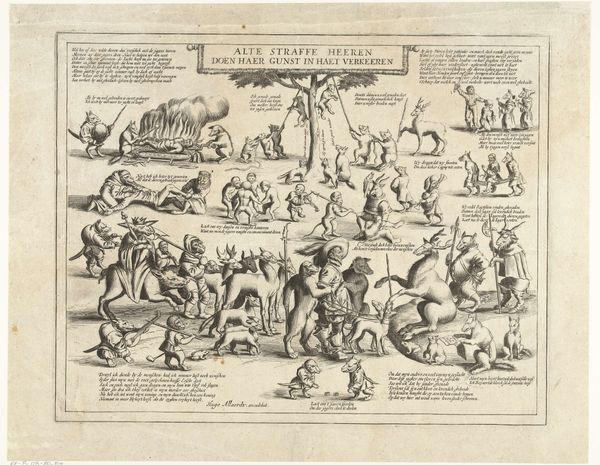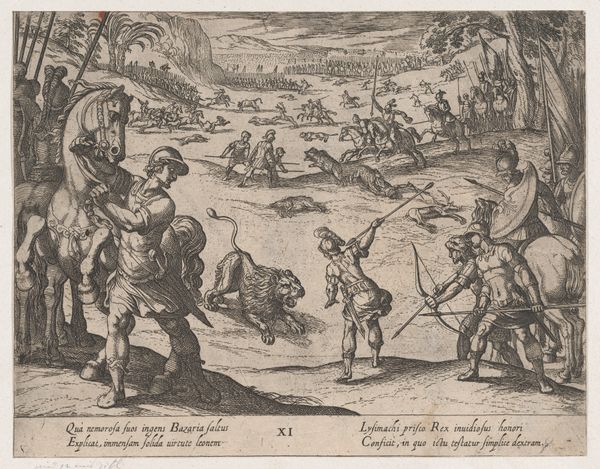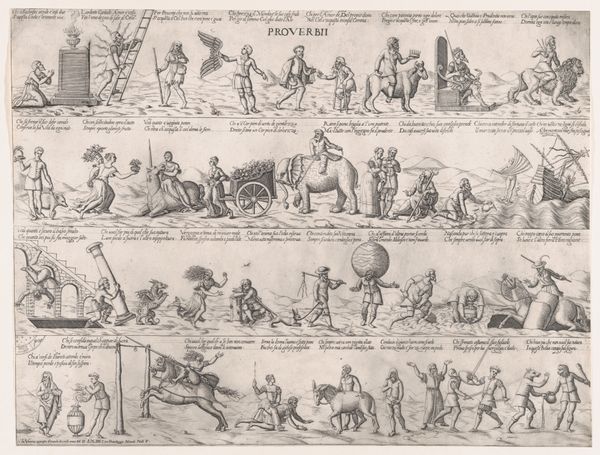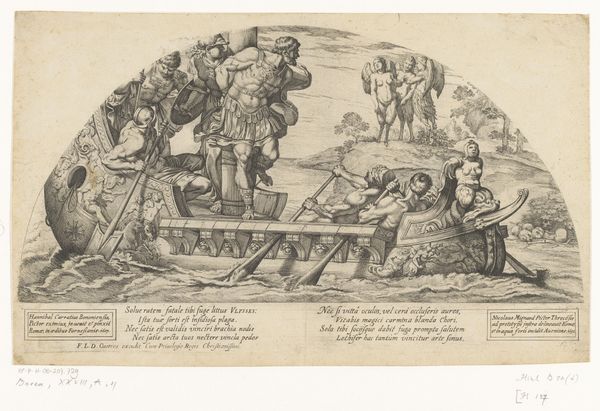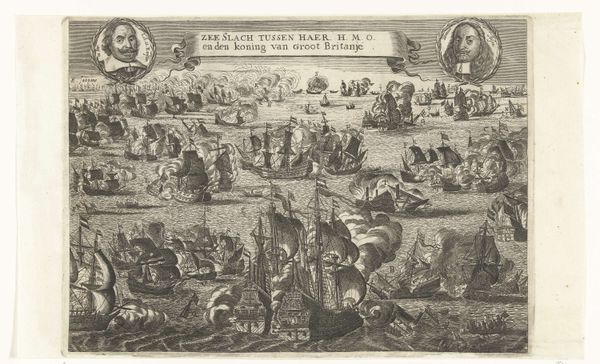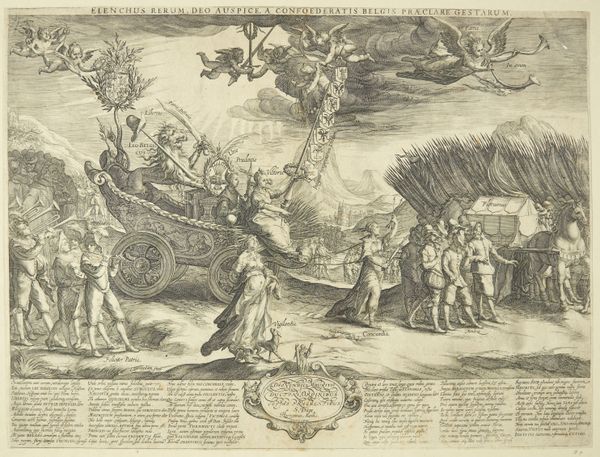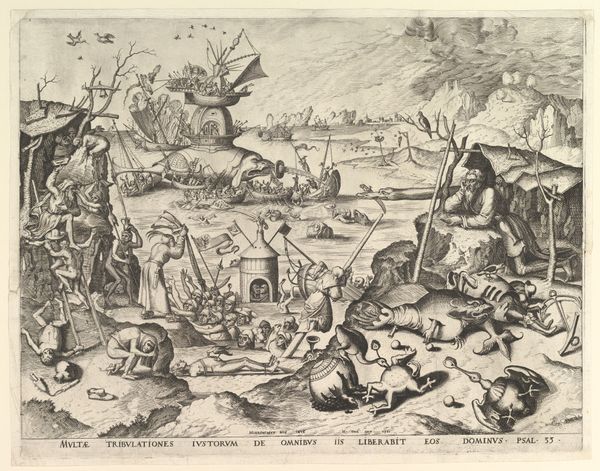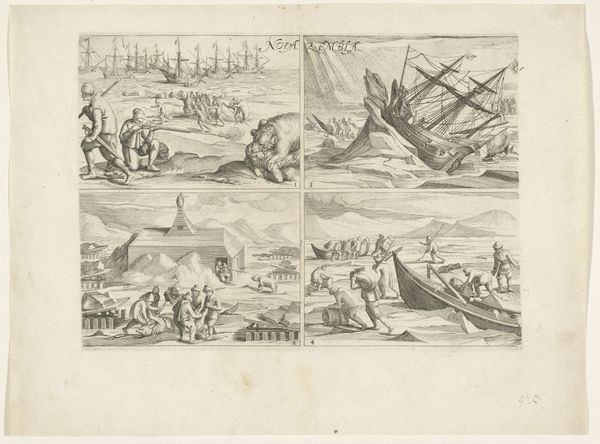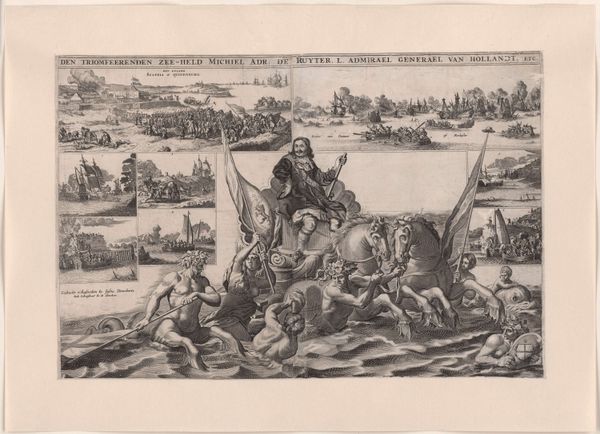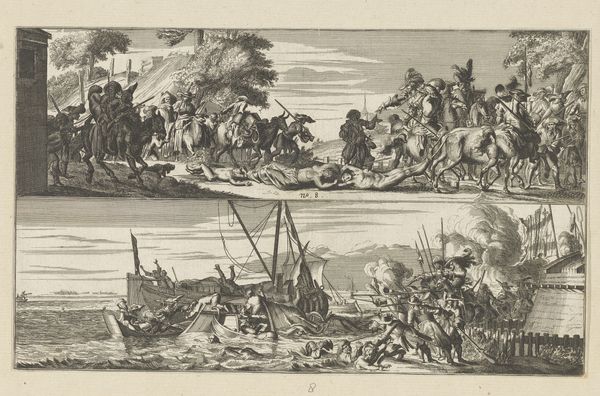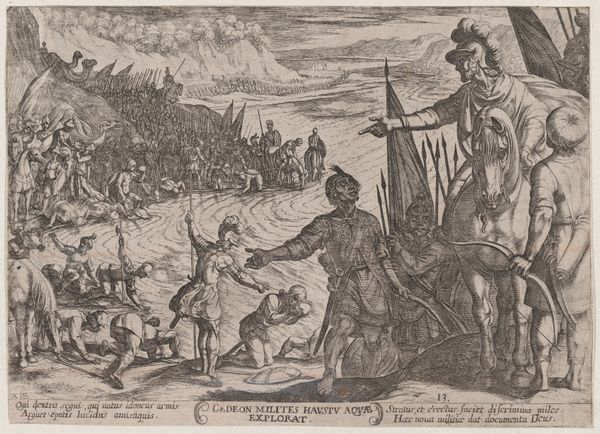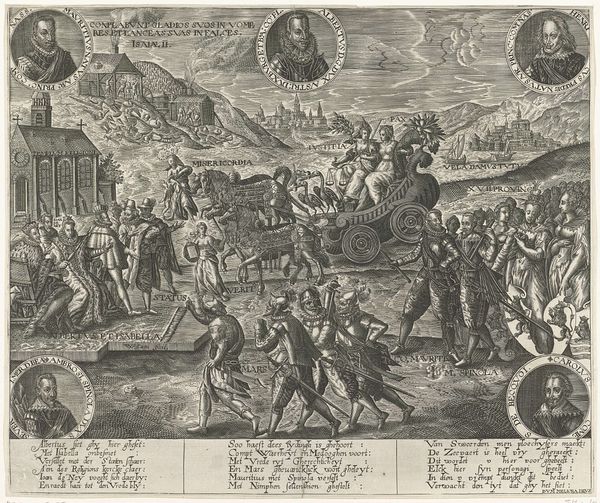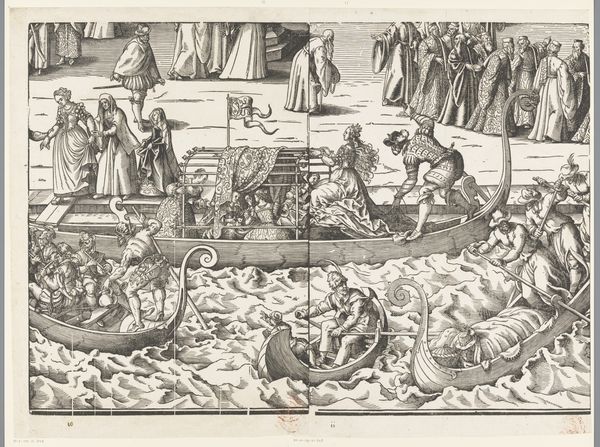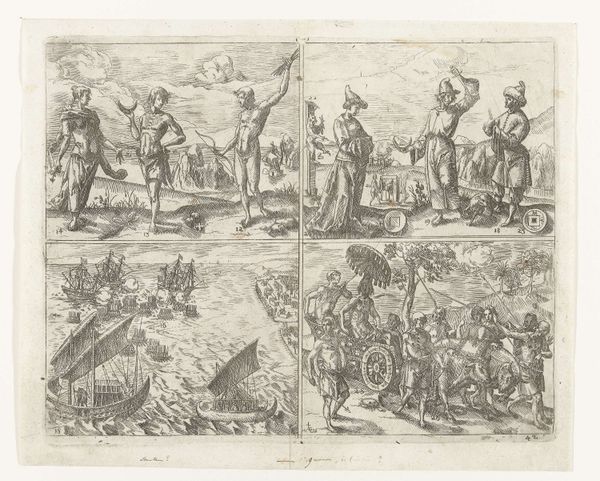
drawing, print, etching, engraving
#
drawing
#
narrative-art
# print
#
etching
#
caricature
#
figuration
#
line
#
history-painting
#
engraving
Dimensions: sheet: 9 1/16 x 14 11/16 in. (23 x 37.3 cm)
Copyright: Public Domain
Editor: Here we have "The Closet," an etching and engraving created in 1778, now at the Met. There's so much going on – it almost feels like a storyboard. What strikes you first when you look at it? Curator: Initially, the work's organizational structure demands attention. Note the compartmentalization into distinct narrative frames. Each section, delineated by precise line work inherent to the etching and engraving processes, operates as a separate syntagm. Editor: Syntagm? Curator: It's a term, adapted from linguistics, denoting a sequential, linear relationship – in this case, mini-narratives placed in succession. Consider the upper left corner versus the lower right. There’s a clear separation. How does this fragmentation influence your understanding? Editor: I see, the layout dictates how you read it, like chapters. Each vignette has different spatial relationships and figures – but I’m curious why this layout? What purpose does it serve besides visually breaking up the different scenes? Curator: Precisely. We are invited to analyse the whole using relational semiotics - investigating how each fragment informs the meaning of another. Does that suggest a thematic concern running through this visual text? Editor: Maybe… a unifying message interpreted in different scenarios? I guess, understanding it then is a bit like decoding a puzzle using structural relationships, where line and layout become critical keys to unlock the meaning. I now see how focusing on that reveals a deeper appreciation! Curator: Exactly, by examining the composition, we can identify an artistic language far removed from a literal approach, but crucial in comprehending meaning.
Comments
No comments
Be the first to comment and join the conversation on the ultimate creative platform.
